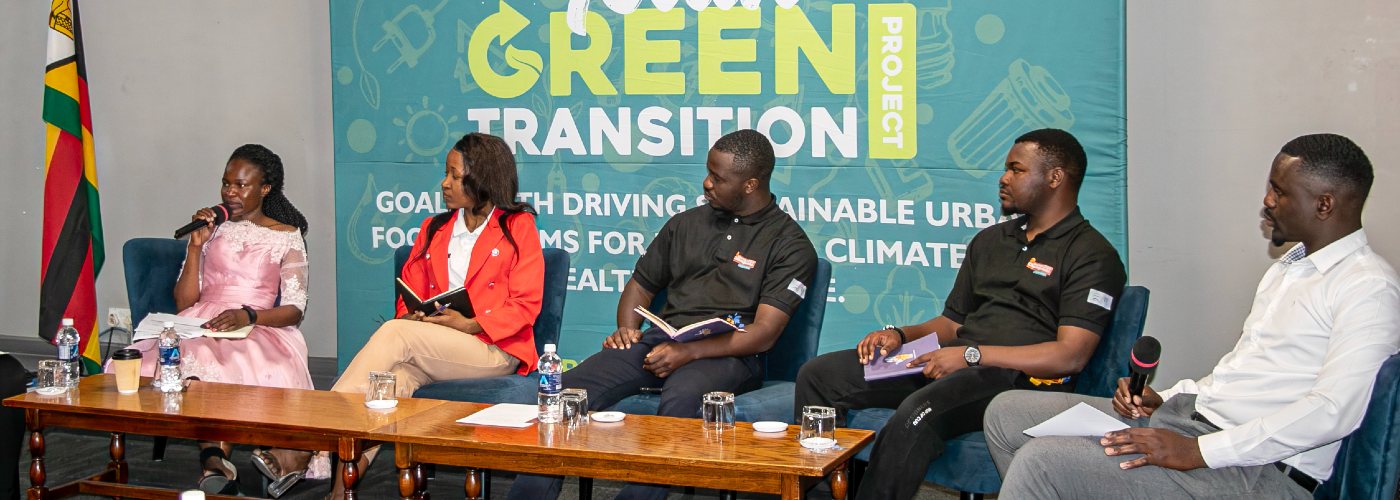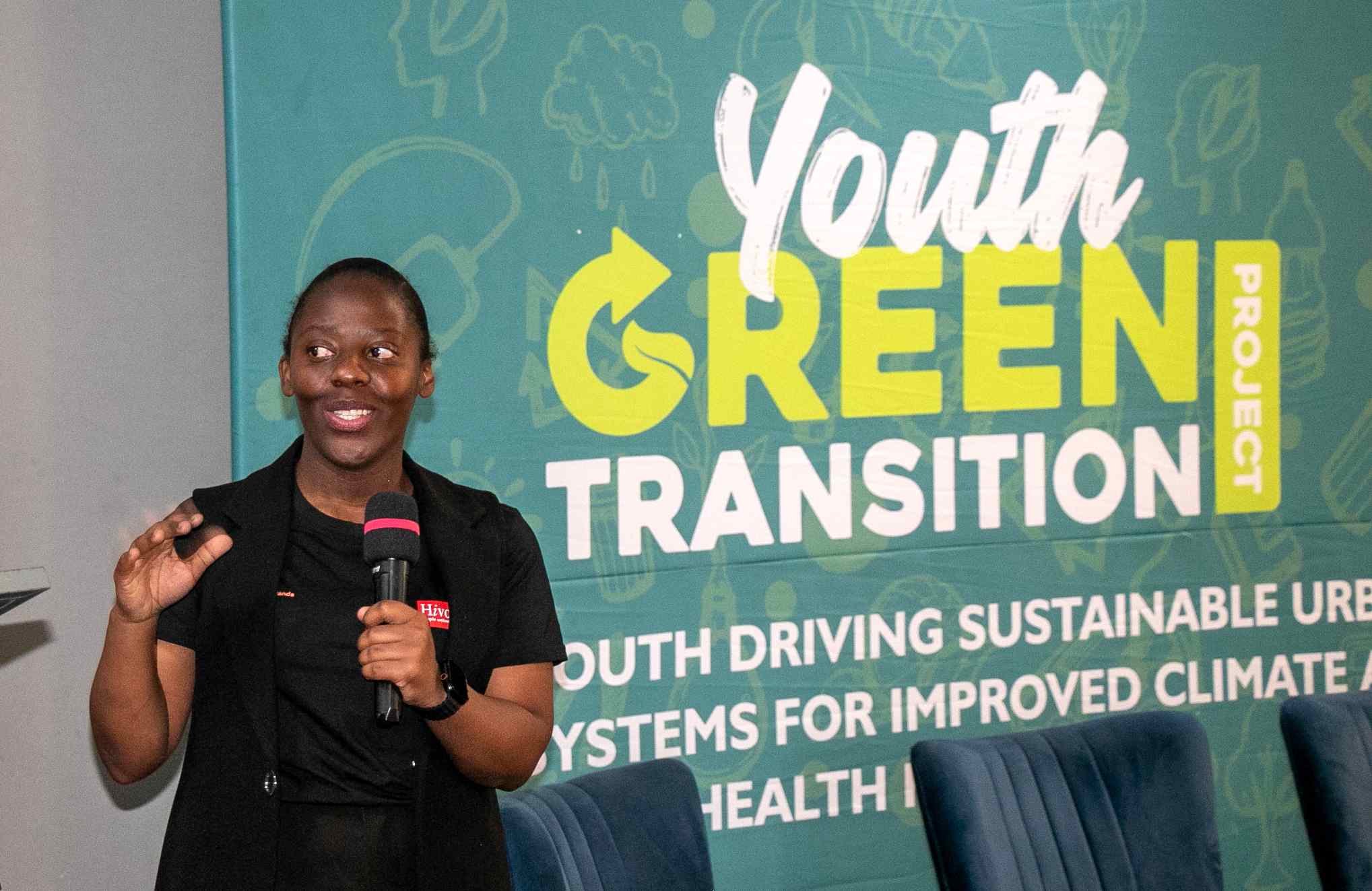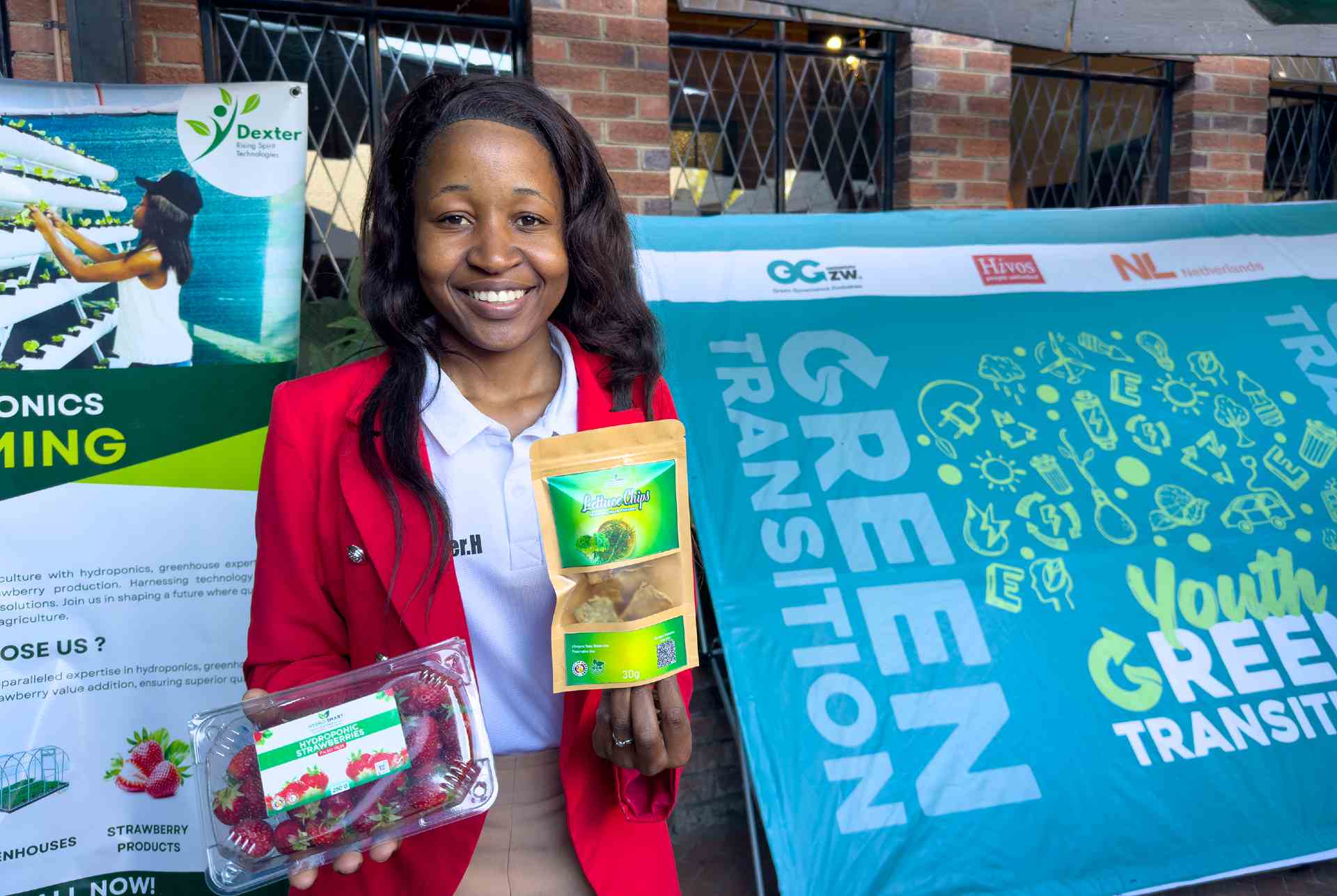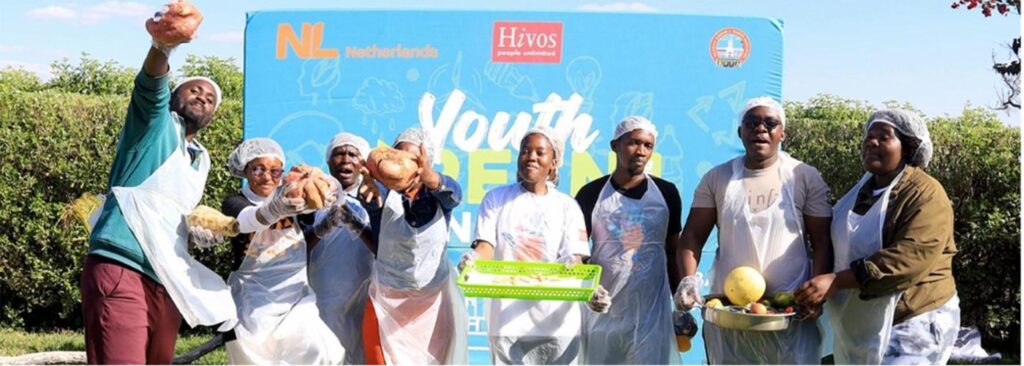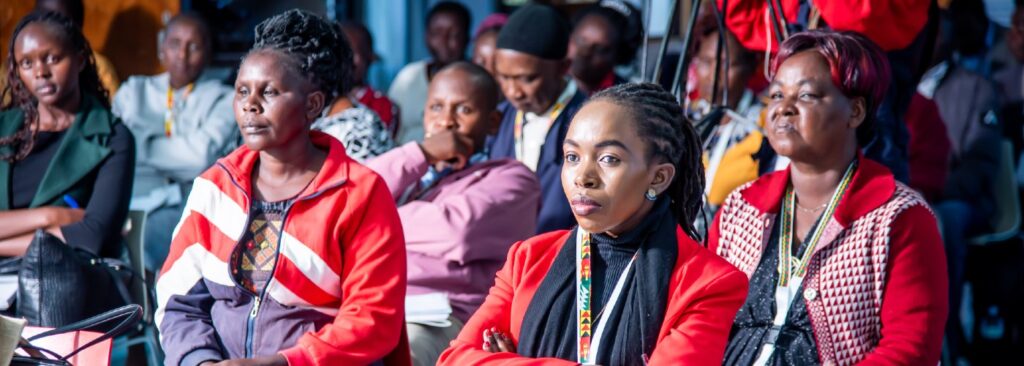Youth from the cities of Bulawayo and Mutare in Zimbabwe have taken a bold path to shape the future of food systems. This was clear at the Green Transition Policy Symposium recently held in Bulawayo, hosted under the Green Transition project, funded by the Embassy of the Netherlands in Zimbabwe.
The symposium brought together youth participants from Bulawayo and Mutare who had been trained under the project’s policy and smart farming components. They debated with policymakers, climate experts, and city officials in an effort to bridge the gap between youth innovation and the policy frameworks that govern food systems, green enterprise, and climate resilience in Zimbabwe.
Connecting policy with practice
The symposium offered a platform for young people to showcase their enterprises, exchange ideas with policymakers, and reflect on how existing policies can better support youth-led green enterprises.
It also created space for dialogue on inclusivity and the participation of persons with disabilities in green business. As one facilitator put it: “Building resilient food systems means ensuring that every voice is part of the solution.”
Youth voices of change
Among the participants was Sukoluhle Ndebele, founder of Usiko Dried Fruits, whose business processes locally grown fruit using sustainable methods. For her, the symposium was a defining experience. “The day was electrifying; youth voices were not just heard; they were valued. We unpacked policies, explored opportunities, and shared innovations that prove young people are not waiting for the future. We are already shaping it,” she said.
Sukoluhle shared four key lessons she took from the symposium:
1. Youth must know policies to shape them
Policies are not abstract documents locked in council offices — they directly affect our businesses and opportunities. The Bulawayo Youth Policy (2019) reminds us that youth participation is a right, not a favor.”
2. Green innovation thrives in an enabling policy environment
“The Bulawayo Urban Agriculture and Food Systems Policy (2021) recognizes climate-smart practices like hydroponics and fogponics. This is forward thinking by the council, and these are methods some young entrepreneurs are already using. I now see Usiko not just as a business, but as part of a city-wide sustainability movement.”
3. Inclusivity must be at the heart of policy
“Policies must include people with neuro-sensory conditions like autism, anxiety, and schizophrenia. Building inclusive systems means creating space for everyone to participate and thrive.”
4 Advocacy should be smart and strategic
“Our advocacy must be informed and collaborative, calling for tax incentives, reduced import duties on agri-equipment, and support for youth-led green enterprises.”
“For Usiko Dried Fruits, this knowledge is a game-changer,” she added. “Now I know the right spaces and people to approach for support. My business can be a platform for youth empowerment and climate resilience.”
“We must own our food systems”
From a different perspective, Providence Moyo, a senior reporter with Matabeleland Pulse, described the day as an eye-opener that deepened her understanding of food sovereignty and climate-smart agriculture.
“I learnt that Zimbabwe needs food sovereignty, which is owning our food production systems from the ground up to value addition before importing,” she said. “The Embassy of the Netherlands encouraged us to reinvent farming through smart structures like drip irrigation and e-farming, which conserve water and increase yields,” she told us.
Providence, who also sat on one of the panel discussions, said the symposium revealed how policy, media, and advocacy intersect in advancing climate resilience: “Being part of the panel was a great learning experience. I gained insights into how Mutare is building a youth-friendly farming ecosystem. The networking session opened my eyes to how different stakeholders (council staff, youth, and climate experts) can work together to build resilient cities.”
She emphasized that the experience would strengthen her professional work: “The knowledge gained from this opportunity will help me scale up my advocacy strategies from an informed perspective. I now understand how the media can play a key role in amplifying youth voices in the urban climate space.”A collective step toward a greener future
The Bulawayo Policy Symposium stood out as a space for transformation. For the youth who participated, it offered the tools to connect their everyday innovations to the policies that shape the nation’s green transition.

